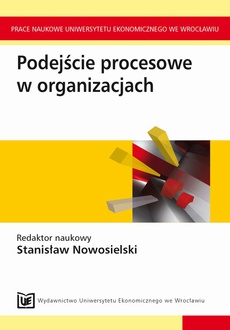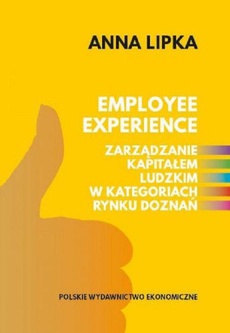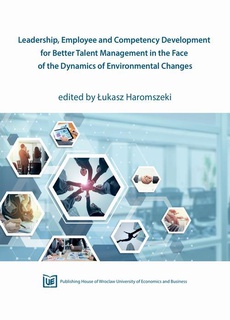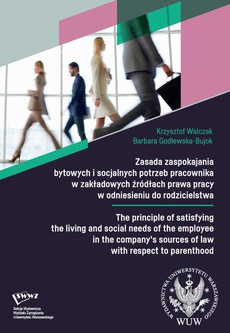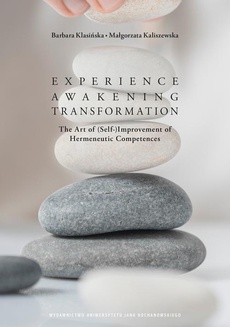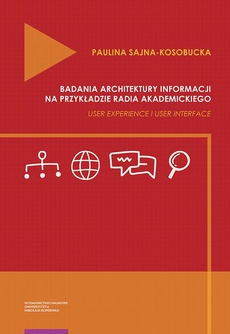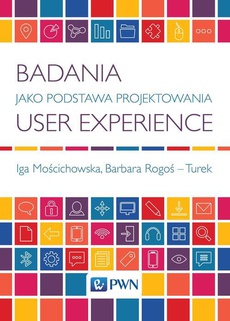POLECAMY
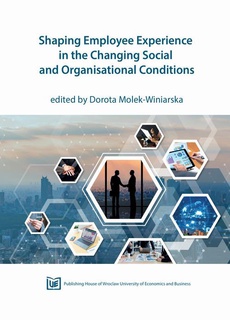
Shaping Employee Experience in the Changing Social and Organisation Conditions
Redakcja:
Format:
ibuk
W publikacji zawarto refleksje nad kształtowaniem doświadczeń pracowników i zdobywaniem unikalnych kompetencji w obliczu zmian, których jesteśmy świadkami i w których uczestniczymy. Książka prezentuje tematy dotyczące analizy doświadczeń pracowników w środowisku organizacyjnym i społecznym, będące efektem zmian kulturowych, społecznych, gospodarczych i technologicznych. Uwzględniono w niej perspektywę krajową i międzynarodową w celu przedstawienia sposobów wpływania na doświadczenia pracowników. Wielowątkowość dociekań teoretycznych i przeprowadzonych badań empirycznych odzwierciedla szybkość i intensywność zmian społecznych oraz zawodowych na rynkach krajowym i międzynarodowym. Książka może być inspiracją dla zarówno naukowców, jak i praktyków zarządzania w procesie podejmowania działań w różnych obszarach organizacyjnych i społecznych.
| Rok wydania | 2022 |
|---|---|
| Liczba stron | 107 |
| Kategoria | Publikacje darmowe |
| Wydawca | Wydawnictwo Uniwersytetu Ekonomicznego we Wrocławiu |
| ISBN-13 | 978-83-7695-989-4 |
| Numer wydania | 1 |
| Informacja o sprzedawcy | ePWN sp. z o.o. |
Ciekawe propozycje
Spis treści
| Preface | 7 |
| 1. Types of well-being interventions in reducing work-related stress during the pandemic (Dorota Molek-Winiarska, Agata Pelc) | 9 |
| 1.1. Introduction | 9 |
| 1.2. Work-related stress and well-being | 9 |
| 1.3. Well-being interventions at work | 10 |
| 1.4. Sources of work stress in the pandemic | 11 |
| 1.5. Method | 12 |
| 1.6. Results | 13 |
| 1.7. Discussion and conclusions | 15 |
| 2. The flexibility of the style of coping with stress as a determinant of efficiency and effectiveness of employee management (Katarzyna M. Rozbejko) | 18 |
| 2.1. Introduction | 18 |
| 2.2. Managerial stress and coping styles | 18 |
| 2.3. Method | 20 |
| 2.4. Results | 20 |
| 2.5. Conclusions and directions for further research | 25 |
| 3. Employees without employers – theoretical reflections on the specificity of gig workers’ psychological contracts (Anna Rogozińska-Pawełczyk) | 27 |
| 3.1. Introduction | 27 |
| 3.2. Gig economy and gig employment | 27 |
| 3.3. The concept of the psychological contract in the perspective of new employment relations | 28 |
| 3.4. Towards a new form of gig workers psychological contract – characteristics of gig employment | 30 |
| 3.5. Conclusions | 33 |
| 4. Availability of non-standard forms of employment in enterprises and its impact on job satisfaction of employees (Czesław Zając, Grzegorz Przystarz) | 35 |
| 4.1. Introduction | 35 |
| 4.2. Forms of employment | 35 |
| 4.3. Job satisfaction and non-standard forms of employment | 38 |
| 4.4. Method | 41 |
| 4.5. Results of case study analyses | 42 |
| 4.6. Conclusions | 43 |
| 5. Experiencing personnel controlling by HR employees – preliminary research results (Małgorzata Striker, Lena Grzesiak) | 45 |
| 5.1. Introduction | 45 |
| 5.2. Personnel controlling | 46 |
| 5.3. Method | 47 |
| 5.4. Results | 49 |
| 5.5. Discussion and conclusions | 52 |
| 6. Occupational experience of Polish migrants during the COVID-19 pandemic with particular focus on remote work (Olga Czeranowska) | 54 |
| 6.1. Introduction | 54 |
| 6.2. Pandemic and careers | 54 |
| 6.3. Migrants and pandemic | 55 |
| 6.4. Method | 56 |
| 6.5. Results | 57 |
| 6.6. Conclusions | 63 |
| 7. The factors that determine the organisational identification of female Ukrainian immigrants who work in Poland (Anna Ścibior-Butrym) | 64 |
| 7.1. Introduction | 64 |
| 7.2. Female immigrants from Ukraine working in Poland and their organisational identity | 65 |
| 7.3. Method | 68 |
| 7.4. Results | 69 |
| 7.5. Discussion and conclusions | 71 |
| 8. Mobility of expatriates in the context of multigenerationality (Gabriela Strzelec) | 73 |
| 8.1. Introduction | 73 |
| 8.2. Expatriates as a form of international migration | 73 |
| 8.3. Characteristics of the generations in the international labour market | 78 |
| 8.4. Conclusions | 81 |
| 9. Retaining Millennials in the People’s Republic of China (Magdalena Krzyzanowska-Celmer) | 83 |
| 9.1. Introduction | 83 |
| 9.2. Characteristics of the Chinese Millennials | 83 |
| 9.3. Stay Millennial-ready | 85 |
| 9.4. Conclusions | 88 |
| 10. Summary | 89 |
| 11. References | 92 |
| 12. List of figures | 106 |
| 13. List of tables | 106 |










